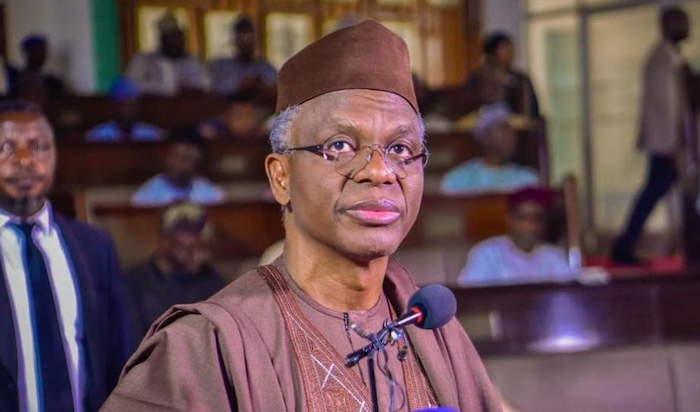Tensions flared in Nigeria’s Kaduna State as early results from a parliamentary by-election sparked political clashes, with a prominent figure from the ruling All Progressives Congress (APC) publicly criticizing former Governor Nasir El-Rufai. Ayekooto Akindele, an APC leader, accused El-Rufai of attempting to use the election to undermine current Governor Uba Sani, describing the move as a failed bid to reclaim influence in the state.
Although Nigeria’s Independent National Electoral Commission (INEC) has yet to declare official outcomes for the Chikun-Kajuru federal constituency by-election, preliminary tallies reported by local media indicate a strong lead for the opposition Peoples Democratic Party (PDP). The African Democratic Congress (ADC), backed by El-Rufai and a coalition of opposition groups, trailed in third place in early counts. At Kufana Monday Market—a polling unit in Kajuru Local Government—the PDP secured 45 votes, while the APC and ADC garnered 13 and 2 votes, respectively.
Akindele took to social media to criticize El-Rufai’s alignment with the ADC, alleging the former governor aimed to exploit ethnic divisions to challenge Governor Sani’s leadership. “El-Rufai’s plan was to use a tribalistic, anti-Tinubu coalition to seize power in Kaduna,” Akindele wrote on X, referencing ADC’s alliance with groups opposing President Bola Tinubu’s administration. He added, “Kaduna’s voters have made it clear that Governor Uba Sani remains their chosen leader.”
The by-election, held to fill a vacant parliamentary seat, has drawn attention as a proxy battle between factions within Kaduna’s political landscape. El-Rufai, who governed the state from 2015 to 2023, had thrown his support behind the ADC after reportedly clashing with Sani, his APC successor, over governance and party dynamics. Analysts suggest the former governor’s stance reflects broader tensions within Nigerian politics, where shifting alliances often redefine local and national power structures.
While the ADC’s performance in early results appears subdued, the party’s adoption by opposition coalitions highlights ongoing realignments ahead of future elections. INEC officials have cautioned that final results remain pending, with votes still being tallied across the constituency. The commission emphasized its commitment to ensuring a transparent process, though delays in announcements are common in Nigeria’s complex electoral system.
The outcome in Chikun-Kajuru is seen as a litmus test for Governor Sani’s popularity and El-Rufai’s residual influence. For Kaduna’s residents, the vote also underscores lingering concerns over economic challenges and security gaps in the conflict-prone region. As Nigeria navigates a period of political recalibration, the by-election results may signal shifting voter priorities—or reaffirm existing loyalties—ahead of larger electoral contests in 2027.
